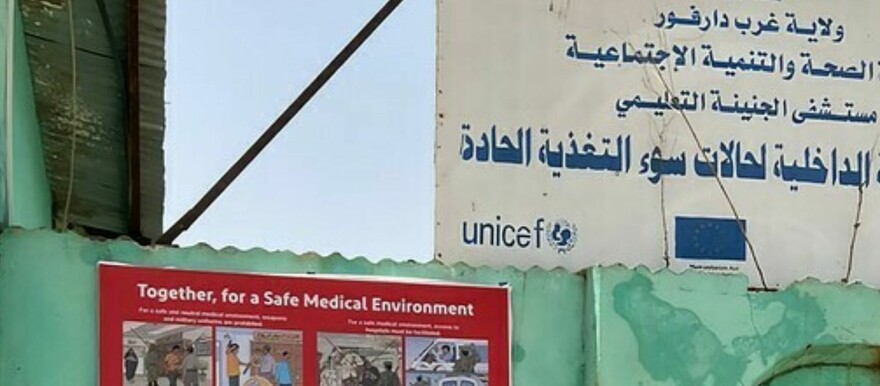The Medical Director of El Geneina Teaching Hospital in West Darfur revealed that, despite the facility facing closures amid recent conflicts, certain departments, including emergency services, injuries, and the maternity ward, remained operational.
Speaking to Radio Tamazuj on Wednesday, Dr. Musab Abdulhadi Suleiman commended his dedicated staff for persistently saving lives, particularly those of women and children affected by confrontations between the paramilitary group Rapid Support Forces (RSF) and the Sudan Armed Forces (SAF).
Dr. Musab highlighted that despite the challenging circumstances, the hospital had managed to secure essential medical supplies before the onset of the fighting.
This proactive measure played a crucial role in facilitating medical treatment for numerous injuries. Moreover, he emphasized the presence of medical personnel at the hospital during confrontations, stating, “We were able to save the lives of a large number of people.”
Dr. Suleiman provided insight into the scale of injuries treated at the hospital, stating, “We received 250 cases of injuries ranging from mild to critical, with variations even among critical injuries. Operations were performed to address these cases.”
He confirmed that the medical team conducted emergency surgical interventions and administered first aid to a significant number of cases, underlining the hospital’s commitment to providing essential healthcare services during challenging times.
He clarified, “We initially conducted 44 surgical operations, but thanks to the intervention and sponsorship by the Red Cross, they facilitated the completion of the remaining operations.” The Red Cross not only provided crucial medical supplies but also deployed trained surgical staff who have successfully performed an additional 41 operations.
The medical director disclosed that among the injured cases were women and children, specifically five children and ten women who suffered injuries from the impact of bombings. He emphasized that the total number of injuries requiring operations reached 117, acknowledging that this figure might be underestimated.
He explained, “We believe the actual number is higher because some individuals received first aid and were subsequently discharged. Additionally, there are cases that necessitate more extensive operations.”
Highlighting the hospital’s commitment to impartial healthcare, he stated, “We provided medical services to both parties involved in the conflict, serving the army, rapid support, and civilians alike.” He affirmed that medical services were extended to all patients, military or civilian, emphasizing that everyone is currently receiving health services within the hospital.




